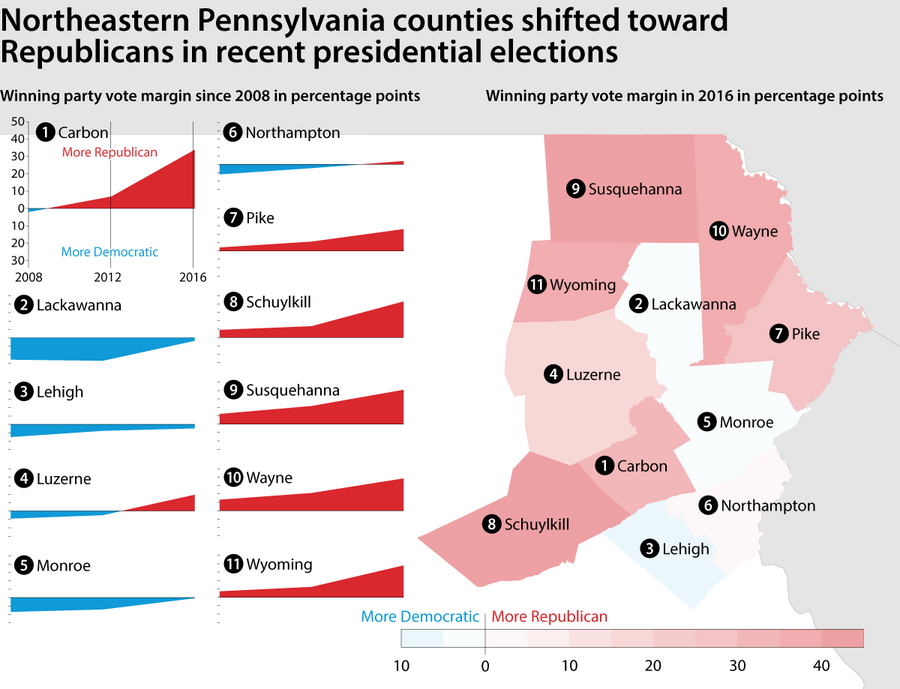Working class voters from Rust Belt states were key to the 2016 election – and may yet decide 2020. Four years later, their concerns are the same: jobs and a future for their kids. But who do they feel best represents their values?
Monitor Daily Podcast
- Follow us:
 Peter Grier
Peter Grier
Thursday’s final presidential debate probably won’t change many votes. President Donald Trump did not hurt himself, though his bar of expectations was low following a rough first debate in which he interrupted constantly. Challenger Joe Biden didn’t slip up, laid out prospective policies, and generally parried the president’s attacks.
In any case there aren’t many votes available to sway. Only about 5% of voters are undecided. With mail-in and early voting about one-third of estimated 2020 ballots – some 47 million – have already been cast.
But debates are still a useful exercise for American democracy.
For one thing debates juice turnout. Over 21 million people watched the debate live, and millions more saw clips and read media coverage. Debates are a clear, head-to-head competition. They can make partisans more excited to head to the polls for their side.
They’re also educational. On Thursday both challenger and incumbent told us who they would plan to be in the Oval Office. Mr. Biden talked like a conventional liberal Democratic nominee, who will try to solve major social problems with preestablished plans. President Trump was the President Trump of the last four years – a mix of bravado, false statements, and improvisation.
And in the end debates are democracy itself. They are rituals that bring together millions of people, who watch and talk about them and judge candidates and think about who the nation’s leaders should be.
“Being engaged in politics, making observations, sharing experiences with others, these are what democracy is about,” tweeted Jennifer Victor, a George Mason University political science professor, following Thursday’s event.














